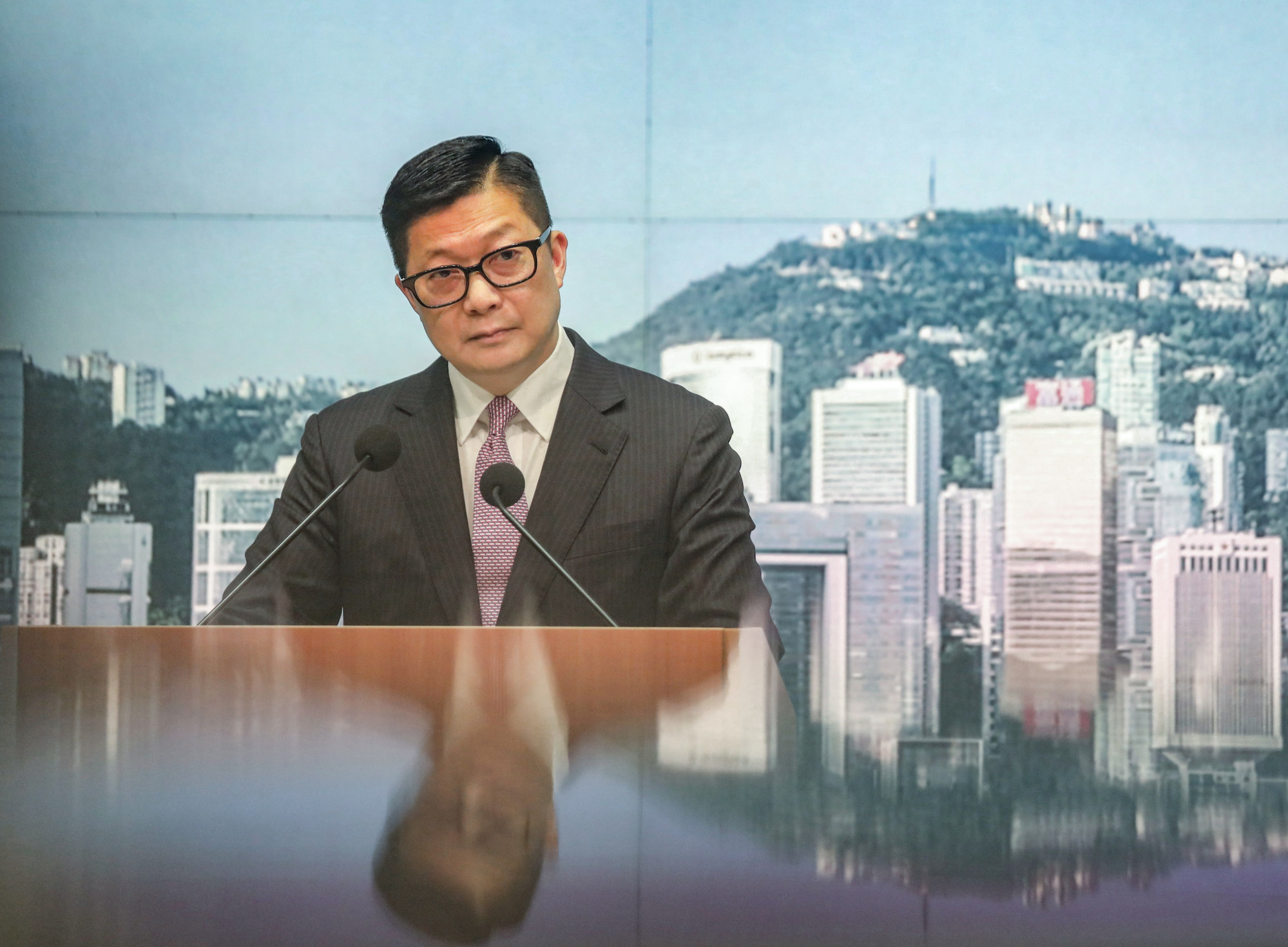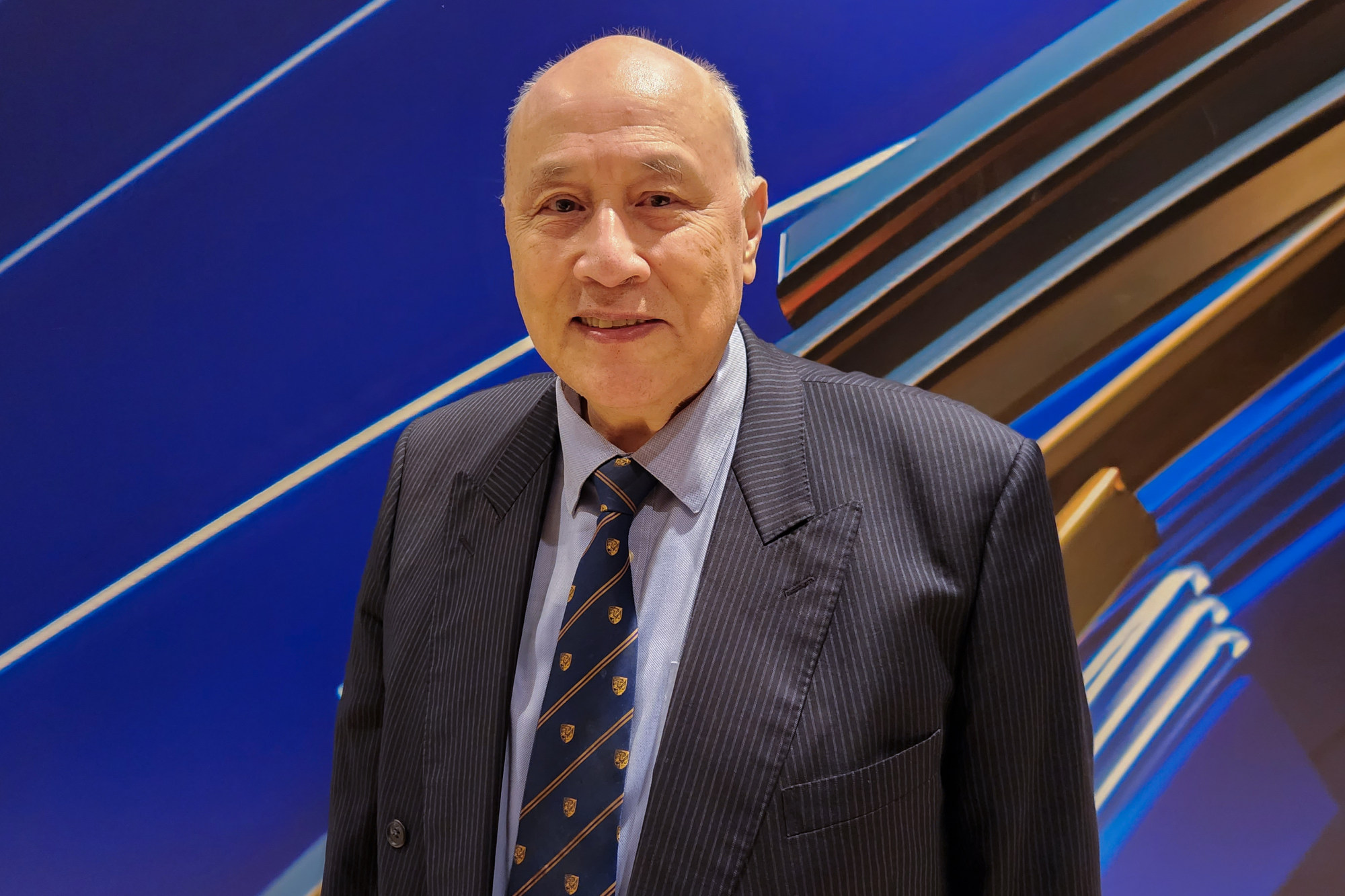Hong Kong security chief vows to hunt down ringleader of cryptocurrency platform JPEX at centre of city’s largest alleged fraud case

[ad_1]
Hong Kong’s security minister has vowed to hunt down the ringleader of cryptocurrency platform JPEX at the centre of the city’s largest alleged financial fraud case involving HK$1.5 billion (US$191.9 million) in losses and more than 2,300 victims.
Secretary for Security Chris Tang Ping-keung on Wednesday said at a press meeting that police had arrested 12 suspects and seized more than HK$8 million in cash, as well as assets worth HK$77 million, including real estate and virtual currency.
“Police are doing their best to locate the whereabouts of the leader of the platform. This is definitely a major factor in their investigation,” he said.

Tang said the scandal so far involved 2,392 victims and a significant amount of money, adding further details could not be revealed until there was more evidence.
But he said the force was “actively” investigating the alleged conspiracy to defraud case, and had contacted relevant individuals, including celebrities who had promoted the platform.
“We will by all means hold the culprits accountable for their crimes,” he added.
Chief Executive John Lee Ka-chiu on Tuesday said the government agreed with the Securities and Futures Commission in providing “transparent and clear” information to investors by naming cryptocurrency firms seeking to set up trading services and those that were licensed.
Hong Kong police arrest 12th suspect in connection with JPEX crypto scandal
Hong Kong police arrest 12th suspect in connection with JPEX crypto scandal
Security chief Tang on Wednesday said the force was working closely with the commission to prevent more cases of fraud by strengthening education on safe trading practises.
The commission earlier revealed only two platforms, HashKey and OSL, had secured a licence for retail cryptocurrency trading services in Hong Kong.
Four other companies – HKVAX, HKBitEx, Hong Kong BGE and Victory Fintech Company – have applied for a licence and are pending approval.
Former commission chairman Anthony Neoh on Wednesday said the regulator had done its best regarding the JPEX case given the circumstances.
“The regulation on virtual assets did not come into effect until June 1 this year, so the commission had no legal powers prior to that,” Neoh said on the sidelines of a forum on the Greater Bay Area, Beijing’s initiative to integrate Hong Kong, Macau and nine mainland Chinese cities into an economic powerhouse.
“Now, they did warn the public, but it could be said in retrospect, in hindsight, they should have done more.”

He said the commission could have taken enforcement actions against JPEX sooner, but it was likely that it had good reasons for not doing so as it might have been investigating the platform or it did not want to intervene for fear of negatively impacting investors.
“The regulator made the judgment with the best information or best intent, and I do not believe they acted in any bad faith,” he said. “They acted according to what they believed was the dynamic situation at the time.”
Neoh also defended the commission’s U-turn to publish a list of companies that had applied for licences to offer cryptocurrency trading services to retailers.
‘Like talking to itself’: Hong Kong watchdog under fire over speed in JPEX scandal
‘Like talking to itself’: Hong Kong watchdog under fire over speed in JPEX scandal
He said the regulator was originally worried that the list would create a false sense of safety, but added he believed the overwhelming public interest in these companies had overridden the concern.
Neoh argued the scandal had exposed the need to step up investor education, saying residents had been lured by JPEX’s “impossible” promise of gaining an annual return as high as 20 per cent.
He pointed out that the regulator and the Investor and Financial Education Council had provided alerts about the platform, but these were likely buried under the massive advertising campaign by the company.
Neoh added such advertisements should be regulated as the current legal framework did not include guidelines.
[ad_2]
Source link





